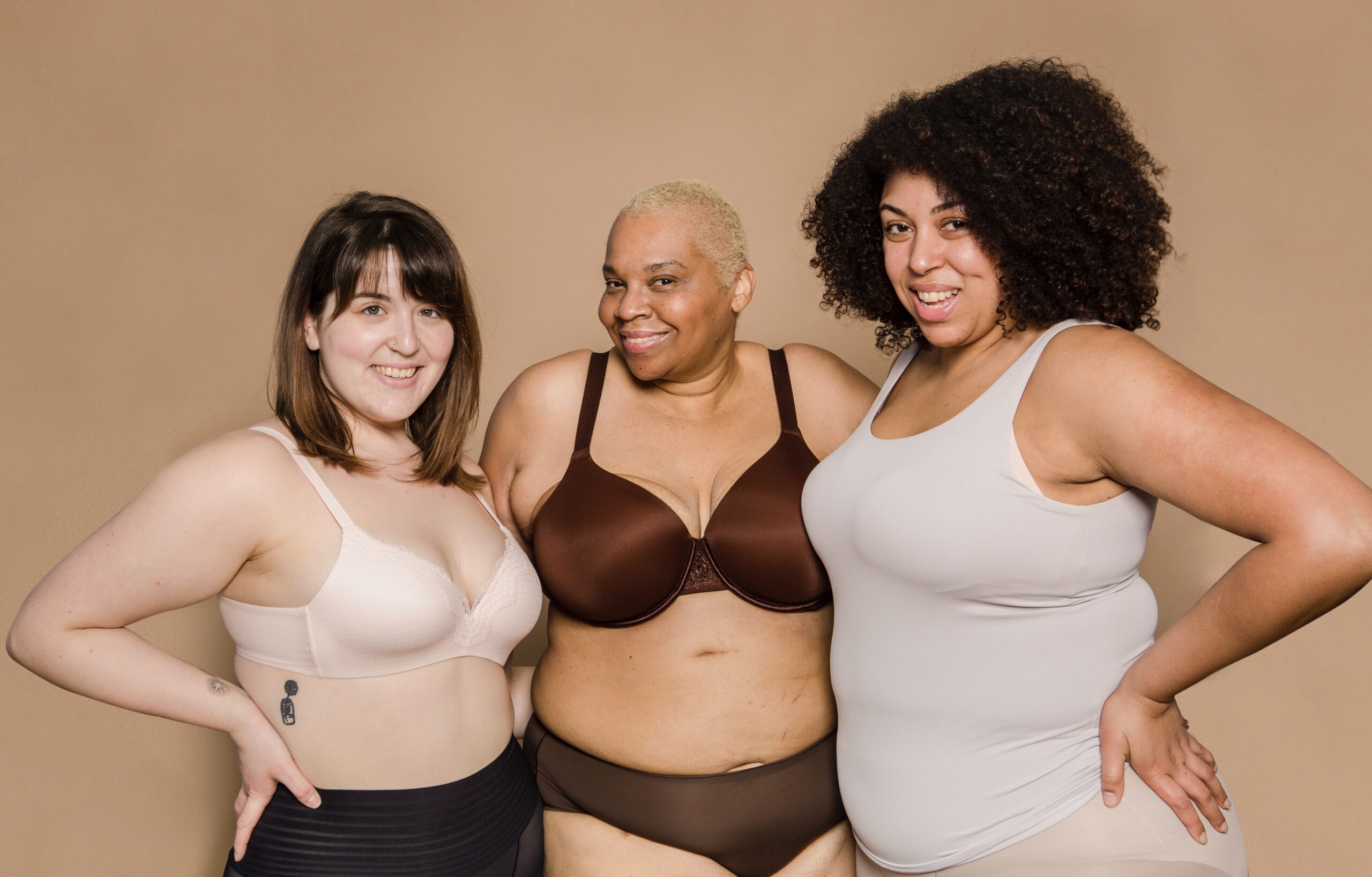
By Hollie Jones
We all know what it’s like to be a teenager staring unhappily at your body in the mirror, poking the bits you don’t like and trying to suck your stomach in for as long as you can.
It’s a sad but all too familiar image — one that will resonate, particularly with women, across different cultures and countries around the world. We are taught from a very young age to strive for perfection and feel shame at our “flaws” — whether this is as a young, vulnerable teenager, a new mom trying to find acceptance with her post-baby body, or women in their fifties going through menopause.
Unfortunately, this situation isn’t getting much better, especially when we (both as individuals and society) push diets towards teen women with harmful and long-lasting effects such as body dysmorphia.
In this post, we’ll be talking about how we can really understand body dysmorphia and how harmful diets are to the already complicated relationship teenagers have to their bodies.
What is body dysmorphia?
Body dysmorphia — also known as body dysmorphic disorder or BDD — is a condition characterized by obsessive thinking about a flaw (or multiple flaws) on your face or body. Often, this is either imagined or exaggerated in your mind — and most other people won’t even notice this “flaw” or think anything of it.
This “flaw” could be a specific body part, or things like acne or freckles on your face, or an obsession with your weight and thinking you are bigger than you really are. Becoming fixated by your flaws can make things like looking in a mirror very difficult — turning it into an obsessive, upsetting behavior (or perhaps avoiding mirrors altogether). It also means that you spend a lot of time comparing how you look with others, as well as constantly seeking validation and assurance.
People with body dysmorphia tend to try to hide or cover up the flaw that they are worried about, whether this is with make-up or clothes. This can entail repetitive grooming behaviors which involve a lot of time and effort.
Body dysmorphia affects both men and women (although slightly more women than men), and tends to surface when you are first in your teens. It can have a huge impact on your day-to-day life, and can also lead to depression, self-harm and even thoughts of suicide.
Why does puberty trigger body issues?
Your teenage years are a turbulent time; hormones are racing around your body and you go through all sorts of changes.
Puberty can cause your body to change in more ways than one; as you transition from child to adolescent, you tend to gain a bit of weight. Before you grow into this weight and your body sorts itself out, it can look like you have gone from healthy child to slightly chubby teenager (sometimes known as ‘puppy fat’ or ‘baby fat’). Generally, however, this will sort itself out, so there is really no need to worry.
Unfortunately, some parents or guardians can interpret this as unhealthy weight gain or obesity — which can be reinforced by a doctor. The result is a diet is pushed onto the teenager — cultivating any anxiety or body image worries that the teenager already has, and reinforcing a sense of shame.
Puberty is also a time when you change mentally and emotionally too. Around your teenage years, you become more aware of society and societal pressures — such as social media and online imagery of idealistic bodies that do not match up with your reality. You are also more vulnerable; you become more self-conscious and sensitive to the opinions of others, preconceptions and societal norms (particularly ones that you and your body might not adhere to).

How diet-pushing can harm teenagers psychologically
Pushing diets towards teenagers can have long-lasting and extremely harmful mental effects.
Think about it: from an incredibly young age, we surround young girls with images of idealized female perfection. From social media accounts to magazines, movies and fashion runways: our modern world is full of “perfect” female beauty — that is, more than likely, completely unattainable.
Couple this with the pressure to diet and a vulnerable adolescent mind, and it’s no surprise that young women develop body dysmorphia and other body issues in their teenage years.
Pushing diets and bombarding teen girls with harmful messages about their bodies can often be the first step towards a dangerous eating disorder or troubling relationship with food and their bodies. This can lead to a lifetime of obsessive calorie-counting and standing on the weighing scales nervously, dependency on dangerous and ineffective appetite suppressants, alongside constant guilt associated with eating and enjoying yourself. Of course, we haven’t even mentioned the low self-esteem and confidence problems that come with hating the body you see in the mirror.
These harmful effects don’t just stop with the individual either; new research suggests that if your parents pushed you to diet as a teenager, the chances are that you will do exactly the same to your own children when they are teenagers. So when parents focus on a teen’s diet, it creates an unhealthy cycle that can harm generations to come.
The harmful physical effects of dieting on teenage bodies
It’s not just long-lasting psychological effects that pushing diets towards teens either; dieting can have serious physical consequences for teenage bodies too.
Not only does exposure to dieting and encouragement to diet set adolescents up for eating disorders like anorexia, but it can also lead to problems like obesity brought on by yo-yo diets and binge-eating.
Dieting can even have a detrimental effect on things you wouldn’t expect, like bone health. During puberty, your bones grow quicker than any other time; it’s a period of dramatic skeletal growth, where bones get bigger and stronger. Extreme dieting — and not having the right nutrients in your diet like calcium — can dramatically reduce bone mass and strength, causing all sorts of problems like osteoporosis and fragility fractures later in life.
Other negative physical effects include impaired cognitive ability (things like memory and learning) and mood (making teenagers feel low, irritable or angry, at a time when their emotions are already running high). This can have huge repercussions in both their social lives and education — severely impacting learning.
In extreme cases, dieting can even damage the heart and kidneys, and weaken the immune system.
Pushing diets towards teens is so dangerous — setting them up for a lifetime of issues like body dysmorphia and accompanying eating disorders. Your teenage years are a particularly tumultuous time where your self-esteem and confidence are fragile; we need to do everything we can to protect teenage women and ensure that their relationship with their bodies and eating remain healthy and positive.

















